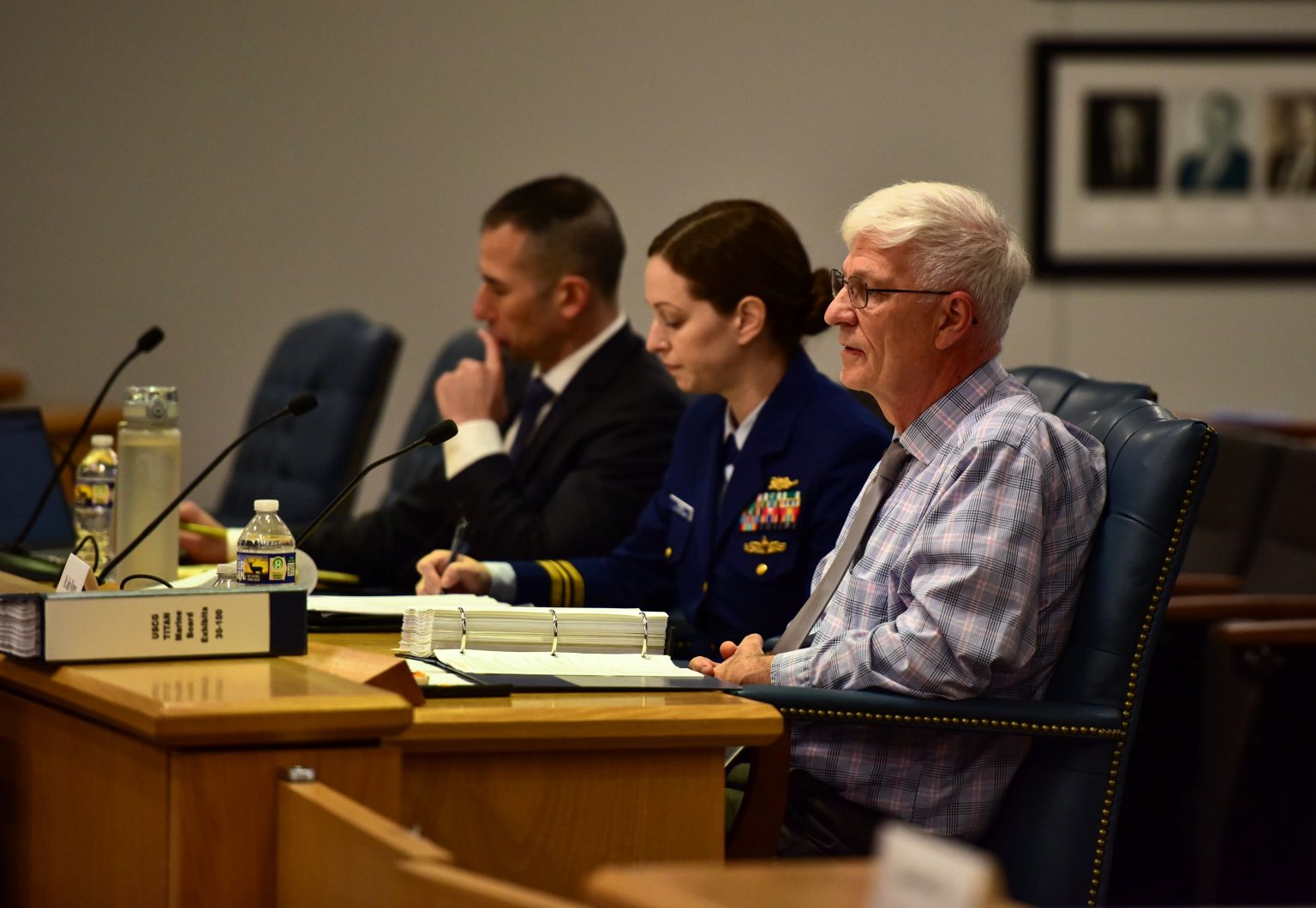The U.S. Coast Guard conducted a public hearing to investigate the loss of OceanGate’s Titan sub and its crew, delving into the regulations governing submersibles. John Winters, the master marine inspector for Coast Guard Sector Puget Sound, testified at the hearing and revealed that he had no involvement with Titan, despite working on other subs for OceanGate in the past. The Coast Guard is looking into regulatory changes to prevent future incidents involving submersibles like the Titan tragedy, which resulted in the death of five individuals including OceanGate CEO Stockton Rush.
Witnesses at the hearing highlighted concerns surrounding OceanGate’s use of carbon-fiber composite for the sub’s hull, with some witnesses from NASA and Boeing providing additional context to these concerns. The regulatory gaps related to OceanGate’s operations were also discussed, with questions raised about whether Titan was properly inspected by the Coast Guard before its fatal descent to the Titanic. OceanGate’s business model, which involved paying customers participating in research missions aboard their submersibles, also raised questions about compliance with Coast Guard regulations.
Lt. Cmdr. Jonathan Duffett of the Coast Guard Office of Commercial Vessel Compliance discussed the requirements for small submersibles and emphasized the need for Coast Guard inspections for subs taking on paying customers. The hearing also raised questions about communication between Coast Guard sectors and the oversight of submersibles used for research missions. The Coast Guard acknowledged that while Titan operated in international waters for its dives, oversight was limited during the testing of Titan in Puget Sound.
Boeing engineer Mark Negley testified that Boeing had provided engineering advice to OceanGate during the design process of the Titan sub, particularly related to the use of carbon-fiber composite for the hull. Negley mentioned the challenges involved in meeting OceanGate’s specifications for the hull thickness. The relationship between Boeing and OceanGate ended around the 2016-2020 timeframe, with Negley citing cost concerns as a possible reason for the dissolution of the partnership.
NASA engineer Justin Jackson confirmed that NASA had an agreement with OceanGate in 2020 to assist with manufacturing the carbon-fiber hull for the Titan sub. However, the partnership was short-lived due to the COVID-19 pandemic, and NASA did not engage in the manufacturing or testing of the hull. Jackson noted that OceanGate sought to maintain connections with NASA but disagreements over a potential press release led to the end of their collaboration. The hearing shed light on the various partnerships and consultations that took place during the development of the Titan sub, including the involvement of NASA and Boeing.


